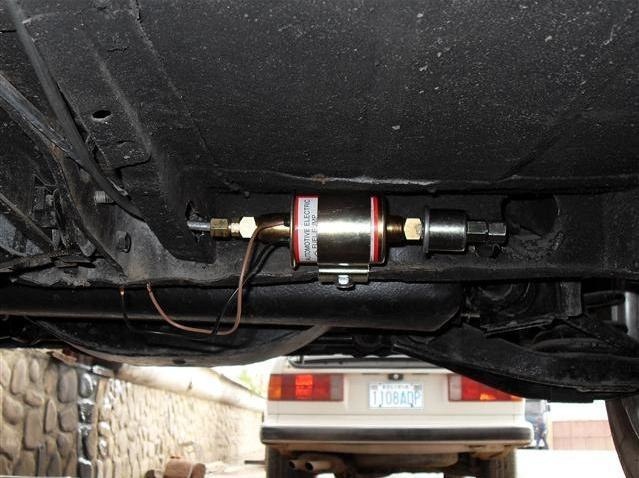Originally Posted By: 440Magnum
Generally I'd agree, but modern winter gas makes running a mechanical almost impossible- too much heat conducted to the fuel through the pump body, and with the super high vapor pressure of winter fuel its a sure-fire vapor lock, at least on this vehicle. Plus mechanical pumps just aren't as long-lived as they used to be- alcohol blends are hard on 'em and since they're no longer the main things used, they just don't build them as well as they once did.
And another bonus with an electric pump is avoiding long crank times to fill the carb when the car isn't driven frequently. turn on the key, let it pump for 15 seconds, and light 'er up!
Okay, that seems like a good set of reasons. My brother's daily driver is still a mechanical fuel pumpe and carbed car, but he doesn't seem to have that issue (on a SBC). My only carbed car left is my old Torino which doesn't run when winter gas is being used, so I haven't seen that problem either.
I've never trusted the aftermarket too much when it comes to the reliability of parts like this, OEM is usually much more reliable. Have you considered trying to retrofit a low-pressure FI fuel pump? I know that the GM TBI pumps are pretty reliable (mine went 200K plus and was still fine) and they run at low PSI (9-12 PSI is the GM specs IIRC). Still higher pressure than a carb, but with a pressure regulator a return line, I am sure you can make it work with your carb. Plus, these pumps are very cheap, I put a Deplhi pump my truck for $65 CDN this fall.
The only issue would be the stock pump has a nipple fitting only on one end. The other end has a connector for a fuel sock. Unless you had a custom sending unit made so that it could be installed in tank, a stock unit might not work. But I did find this unit by Carter, which has an adaptor so both ends have the nipple fitting. At least it "should" be built to OEM specs, but it is quite a bit more pricey than a stock TBI pump.
http://www.summitracing.com/parts/CRT-P5001/
